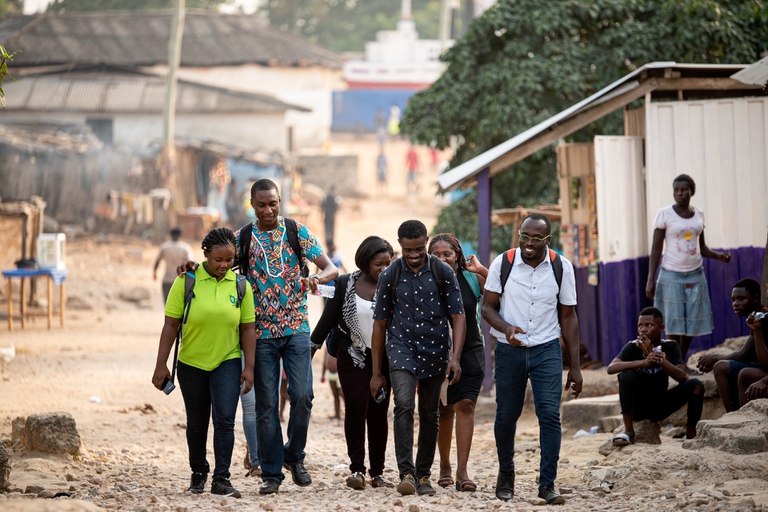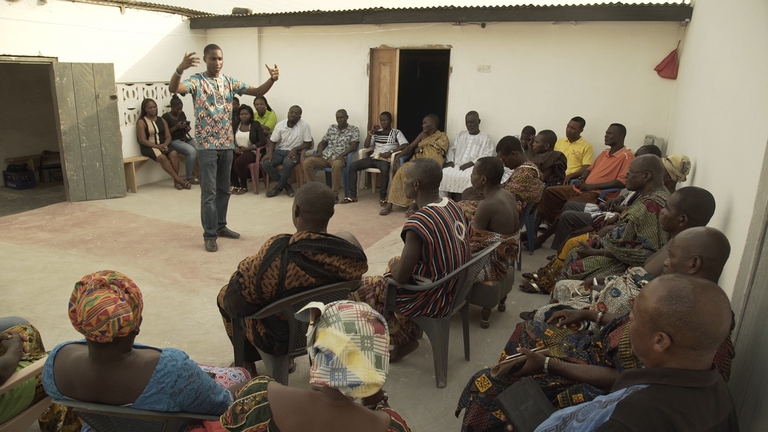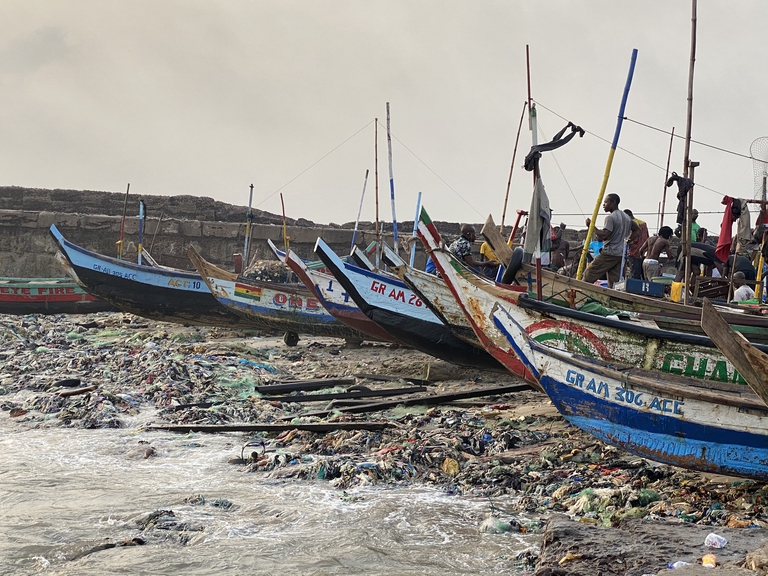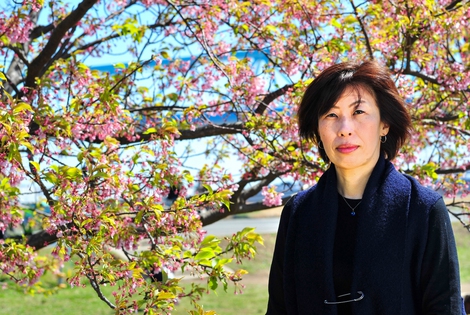
Three people putting the protection of the planet before themselves. Three powerful stories from Latin America, the deadliest region for environmental activists.
Chibeze Ezekiel, winner of the 2020 Goldman Environmental Prize for Africa, is fighting to guide new generations towards a renewable future.
“We were a small group of students, without an office and without resources, but passionate and focused on the goal”. Chibeze Ezekiel, 41, with degrees in Psychology and Sociology, tells the story of the emergence of the small group of activists who after months of struggles forced the Ghanaian government to retrace its steps, abandoning the construction of a 1.5 billion dollar coal plant. A victory that led the young Ghanaian to win the 2020 edition of the Goldman Environmental Prize, the “Nobel Prize for the environment” that annually recognises the efforts of activists from all over the world. “The award came as a very big surprise,” Ezekiel tells LifeGate. “I was on the phone when I found out and for two minutes I didn’t say a word. It was a mixture of both excitement and surprise”.
Like many other African countries, Ghana suffers from a lack of adequate power infrastructure as well as energy production capacity, as continuous blackouts and a lack of electricity for rural communities demonstrate. Only in 2015, 159 blackouts were registered throughout the country. Over the years the Ghanaian government has invested in hydroelectricity in an effort to contain the problem, but the severe and prolonged drought that has hit the country has brought electricity production to its knees.
For this reason, in 2013 the central government proposed the construction of a 700-megawatt coal-fired power plant and a new port adjacent to Aboano, a coastal fishing community in the Ekumfi district.
The Ghanian government has signed the Paris Agreement, so this was a major contradiction.
The proposal was encouraged and subsidised by China. A 1.5 billion dollar loan from the China African Development Fund would have led to the construction of the power plant and port, to be used to import 2 million tonnes of South African coal per year.
“The Ghanian government has signed the Paris Agreement, so this project was a major contradiction (with respects to the politics of emission reduction),” the Ghanian activist states in a video. Deploying the hashtag #coalkill, together with a group of activists he launched a campaign to counter the government’s message that energy from coal would be clean. The group began to work closely with local communities living near the site of the future plant, explaining the enormous health and environmental impacts that the structure would entail. It has provided small communities with alternative solutions, such as solar power kits, to bring electricity to the most remote villages.
We were a small group of students, without an office and without resources, but passionate and focused on the goal.
The pressure from public opinion and local communities grew and in 2016 the Ministry of the Environment announced the coal plant wouldn’t be built.
After the cancellation of the project, the government launched the Ghana Renewable Energy Masterplan, which aims to increase energy generated from renewable sources from 42.5 megawatts (the 2015 output) to about 1.4 gigawatts by 2030. This means reducing dependence on biomass as the primary fuel for thermal power plants and providing decentralised electrification systems based on renewable energy to a thousand off-grid communities.
But Ezekiel’s work hasn’t stopped. With the Strategic Youth Network for Development he works alongside a new generation of young people to educate them on renewable energy, climate change and on future challenges. “At the Youth Strategy Network we are working on climate action,” he tells us. “A project to involve young people in a significant way on climate change,” therefore focusing on the adults of tomorrow.
Siamo anche su WhatsApp. Segui il canale ufficiale LifeGate per restare aggiornata, aggiornato sulle ultime notizie e sulle nostre attività.
![]()
Quest'opera è distribuita con Licenza Creative Commons Attribuzione - Non commerciale - Non opere derivate 4.0 Internazionale.
Three people putting the protection of the planet before themselves. Three powerful stories from Latin America, the deadliest region for environmental activists.
Influential scientist, activist and author Vandana Shiva fights to protect biological and cultural diversity, and against GMOs.
Kimiko Hirata has blocked 13 new coal plants in Japan, but she hasn’t done it alone. The 2021 Goldman Prize winner tells us about her movement.
The Goldman Environmental Prize, the “green Nobel Prize”, is awarded annually to extraordinary activists fighting for the well-being of the planet.
We talk to Shaama Sandooyea, activist and marine biologist from Mauritius onboard Greenpeace’s Arctic Sunrise ship in the heart of the Indian Ocean.
Arrested for supporting farmers. The alarming detention of Disha Ravi, a 22-year-old Indian activist at the fore of the Fridays for Future movement.
Water defender Eugene Simonov’s mission is to protect rivers and their biodiversity along the borders of Russia, China and Mongolia.
Leydy Pech, winner of the 2020 Goldman Environmental Prize for North America, is the beekeeper who defended Mexican Maya land against the agro-industry.
Paul Sein Twa, winner of the 2020 Goldman Environmental Prize for Asia, has spent a lifetime defending Karen culture in Myanmar and its synergy with nature.










